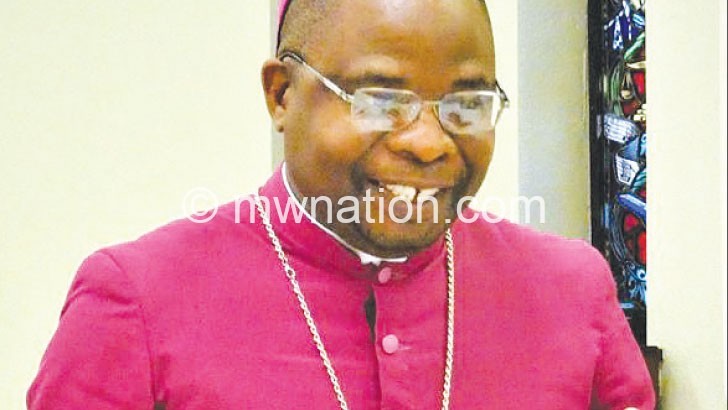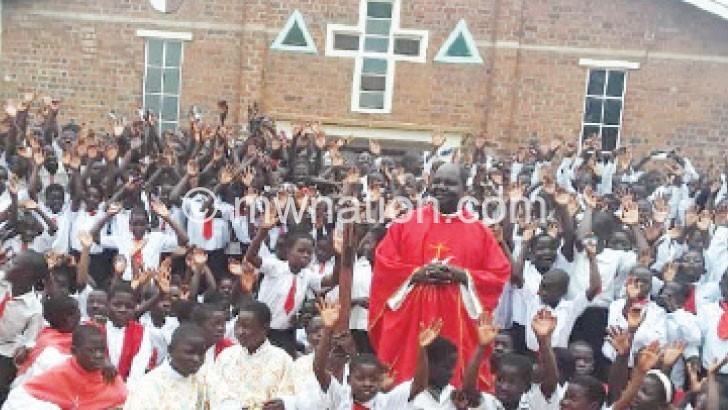Renounce faith in pursuit of education?

Theists believe that a child is a precious gift from God and, therefore, should be raised in the will of the Creator.
Their belief is further anchored by Proverbs 22:6, which says: “Train children in the way they should go; when they grow old, they won’t depart from it.”
Most parents abide by this requirement and that is why they present their babies to the church for baptism and blessing by a priest or any man of God.
This has been the practice since the days of Old Testament when God would ask of parents to take their children to His temple to be blessed by His prophets or priests.
Children are introduced to their parents’ respective faiths while in infancy.
Although some faiths do not recommend infant baptism on grounds that it deprives the child the right to choose the denomination to belong to or not to believe in it, most believers hail the practice and claim it has a bearing on the upbringing of their children.
But if what happened at Makapwa Primary School in Thyolo is to go by, this arrangement may be found wanting in protecting and promoting the country’s children’s right to education.
At the opening of last year’s second term, the head teacher of the school sent back home three dreadlocked Rastafarian pupils.
The pupils whose only crime was the faith they inherited from parents are Miriam, 13, who was scheduled to enroll for Standard Eight; George, 11, Standard Six and Fadweck, eight, of Standard Three, are all children of Ras James Dinesi.
Ras Dinesi was told his children would be allowed back in class only after removing their ‘locks’.
“Up to now, my children are just staying at home which is very unfair,” complained Dinesi.
Millennium Development Goal (MDG) number two obliges Malawi to “ensure that, by 2015, children everywhere, boys and girls alike, complete a full course of primary schooling”.
Wishful as we may think, Malawians may wish to forget delivery of half the UN prayer unless contrasts between secular statutes and those of God are resolved. This may not be a simple undertaking.
Malawi is among countries whose educational and civil registration systems violate the constitutional right to freedom of religion of people who follow faiths not recognised by the government, according to The Jakarta Post.
Commenting on the report, National Commission on Human Rights (Komnas HAM) representative Hesti Armiwulan noted that the problem is that state officials are unaware of people’s freedom to worship in accordance with their religion and faith.
Said Armiwulan: “We must demand that the government proactively create awareness within their officials so that citizen rights are completely fulfilled.”
Fortunately, officials at Capital Hill are aware of their people’s rights and freedoms, including that of worship.
This notwithstanding, the Ministry of Education through its then spokesperson, Lindiwe Chide, said the school was right in throwing out the dreadlocked pupils, arguing “different schools follow some guidelines, which aim to encourage uniformity among pupils”.
“You may wish to note that as a ministry, we have policies that are guiding the implementation of various programmes, including everyday administration of schools.
“From these policies and guidelines, we have generic rules and regulations that apply to all schools and some that apply to particular schools as agreed by school management and parents,” said Chide, adding schools reserve the right of admission for pupils.
One notable issue is that government is grappling with how to address another contentious issue from the Muslim community who want an educational and registration system that will accommodate the wearing of headscarves (hijab) by Muslim women at all public places, including schools.
Again, while the schools reserve the right of admission for pupils, the ministry’s “policies and guidelines” on dressing and uniformity in schools are not backed by the supreme law of the land—Constitution—which is silent on what pupils ought to look like if they are to attend public schools.
Civil Society Education Coalition (CSCEC) executive director Benedicto Kondowe says while every profession has its own code of conduct, it is important that such efforts are aligned to the call for respect of human rights.
Kondowe recommends that some level of compromise has to be made to accommodate the Rastafarian community as long as such a decision does not undermine the rights of other students.
“While this is done, learners and guardians should appreciate responsibilities in enjoying their respective rights. In the case of Rastafarians, government should engage stakeholders on what would be the minimum compromises on the matter in question while observing that rights without responsibilities are next to nothing,” says Kondowe.
As it is, the Rastafarian Community will forever be locked away from the education system unless two things happen: Government should agree to harmonise its laws with religious ordinances or the Rastafarians renounce their faith in pursuit of education.
All in all, both government and the faith community have a role to play in resolving the two issues so that Malawi could register some progress on the MDG target two.





